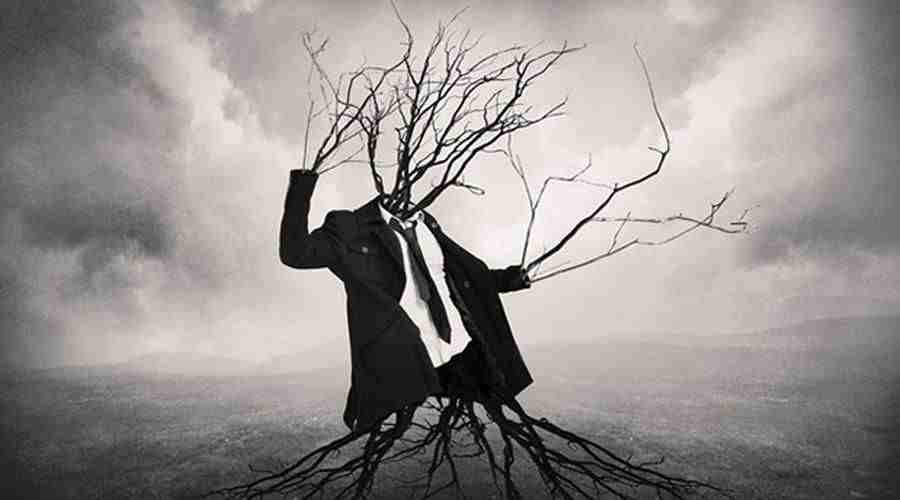创业者度过灵魂的黑暗期,方法竟是…如此简单!



Brad Feld布拉德·菲尔德 | 硅谷风险投资机构Foundry Group总经理,关注处于早期发展阶段的信息技术、因特网、软件创业公司投资。本文刊于2015年的Inc.杂志 英文演讲独家翻译:笔记侠 钟子涵深度好文:1710字 | 3分钟阅读
导读:原来,创业者解决抑郁症的方式,如此简单,竟然是:简化生活,腾出时间关心生理和心理的健康,然后不断地更新自己和视野。天啊,这不就是前几天笔记侠刚发布的《社交的本质:扎克伯格的商业秘密》读书笔记所提倡的吗?详情可点击:精选好书|网络关系已经过饱,赶紧简化出最重要的人
全网完整版翻译首发
全网完整版翻
今年早些时候,两位科技企业家,亚伦斯·沃茨和乔迪·舍曼双双自杀,两人都面临着超乎寻常的压力,且都患有抑郁症。
该如何面对抑郁呢?
这不是一个在创业社群能聊得好的话题。毕竟,把老套的“自力更生、重新振作”口号变成一个更形象的动词,是一门学问。承认你的困扰与抑郁吧,就像承认你有力所不能及的事情吧,虽然我们可以假设一些成功的人可以“摆脱它”,但实际上,这并不是应对抑郁的本质方式。

在我的生活中,发作过三次严重的抑郁症,每一次我都很痛苦。我不是在谈论一系列悲惨的日子,也不是在说因为运营出一家失败的公司,从而在压力下挣扎。
我指的是几个月的情感枯竭的绝望。
最新一次发作开始于1月,在几个月的感觉完全枯竭后,5月才开始恢复正常。一般到了秋天,我很少有任何休息时间,并且睡眠不佳。我不经常跑步。然而在10月,来了一次令人担忧的健康预警:我在医院做了一个手术,取出一块肾结石。
我陷入了深深的沮丧中,我的快乐随风而逝。经历病床的痛苦,经历工作的动荡,一切看起来都有点绝望。
这就是抑郁症的感觉。不过,我很幸运,我有非常棒的妻子、朋友和同事,给了我空间,聆听我的故事,且不加以主观判断。我的沮丧终于消散了。
随着时间的推移,我已经越来越意识到这些病态周期是如何工作的了。我注意到,往往是在我最有创造力的时刻,最容易患发抑郁症。我不认为这是一个巧合,每一次都是这样发生的,不过,一旦我采取措施去以简化我的生活,这样的日子就会缩短。

我腾出时间和空间来关心我的心理健康。我停止将我的闹钟设为5点,让自己睡觉睡到自然醒来。在我的休息日,我不再检查邮件,开始紧跟时事看世界。我减少旅行时间,使读书和跑步时间变得更多。
换言之,我精简了我的生活。因此,我在建筑业和投资公司的业务上效率更高了。
我已经听到许多企业家和投资者的话,他们也承认他们也有同样的感受。现在:失败正在被大家接受——这更是一种信任,只要你可以在博客写出你的反思。

我从黑暗时期活过来的唯一方法,是不断地更新我自己和我的视野。从头再来,是创业过程的一部分,那些在创业社区里的人,应该比任何人都更明白这个道理。
以下是完整英文版
Entrepreneurial Life Shouldn't Be This Way--Should It?
Depression is a fact of life for some entrepreneurs.
Earlier this year, two tech entrepreneurs,Aaron Swartz and Jody Sherman, committed suicide independently of eachother. Both faced incredible pressures. And both suffered from depression.
It's not a topic the start-up community understands well. After all,this is the very culture that turned the chestnut "pick yourself up by your bootstraps" into a much-celebrated verb. Admitting you struggle with depression is like admitting you can't reach your bootstraps. It's assumed thatsuccessful people can just "shake it off."
But that's not how it works.
I know. I've struggled with serious bouts of depression three times in my life.I'm not talking about a series of miserable days or struggling through thepressure and stress of a failing company. I'm talking about months of feelingemotionally drained.
My latest episode began in January and lifted only in May after months of feelingcompletely exhausted. In the fall, I was logging 80-plus-hour weeks on aregular basis, traveling most of the time,trying to recover from a bike accident without taking any time off,and sleeping poorly. I wasn't running regularly, which is usually how I get time alone. Andin an alarming health scare in October, I wound up in the hospital for surgery toremove a kidney stone.
By January, I had slipped into a deep depression. Thejoy went out of everything. I spent February through April prying myself out ofbed, going through the motions at work,and just waiting to crawl back into bed again.
This is what depression feels like. I'm lucky in that I have an incredible wife,friends, and colleagues who gave me space andsimply listened to me, without judgment. My depression eventuallylifted, as it has twice before in my life.
With time, I've become more aware of how these cycleswork. For one thing, I've noticed that often my most creativemoments come on the heels of a depressive episode. I don't think this is acoincidence. Each time it happens, the days get lighter once I finally takesteps to simplify my life.
I make time and space to care for my mental health. I stop setting my alarm for 5a.m. and let myself sleep until I wake up naturally. I observe digital Sabbathsin which I stop checking email, keeping up with the news online,and checking into Foursquare. I travel less. I read and run more.
In other words, I do all of the things that the prevailingstart-up culture tries to squeeze out of my life. And as a result,I'm far more productive in the business of building and investing in companies.
I've heard from many fellow entrepreneurs and investors who have confessed tofeeling the same way. Here's the rub: Failure has become OK--it's even a kindof street cred--as long as you can write the postmortem blog post about yourheroic pivot.
But depression carries a stigma. Most of the success stories we hear involve anentrepreneur who pushes himself beyond his physical and emotional limits. He's unbalanced--but in a good way.
My own experience has made me realize that this imbalance is no way to live thestart-up life, and, in fact, it's detrimental to this kind of work. Theonly way I survive the dark periods is by constantly renewing myself and myperspective. Starting over is part of the process of starting up. That'ssomething those in the entrepreneurial community should understand better thananyone else.
The opinions expressed here by Inc.com columnists are their own, not those of Inc.com.
原文地址:http://www.inc.com/magazine/201307/brad-feld/many-entrepreneurs-deal-with-depression.html?from=groupmessage&isappinstalled=1
【后台回复“笔记”】
获得100个做笔记的好方法
直接点击文字:了解笔记侠CEO创新知识社群
新媒体合伙人、总编辑、编辑、主笔
产品经理、新媒体运营、技术运营、电商运营、活动运营
商务BD、平面设计、漫画师、文案策划
简历请发至[email protected]

点击大咖名字,查看精彩笔记
合作伙伴:混沌研习社|创业邦|领英中国|36氪|腾讯|京东|正和岛|中欧|微链...
最新评论
推荐文章
作者最新文章
你可能感兴趣的文章
Copyright Disclaimer: The copyright of contents (including texts, images, videos and audios) posted above belong to the User who shared or the third-party website which the User shared from. If you found your copyright have been infringed, please send a DMCA takedown notice to [email protected]. For more detail of the source, please click on the button "Read Original Post" below. For other communications, please send to [email protected].
版权声明:以上内容为用户推荐收藏至CareerEngine平台,其内容(含文字、图片、视频、音频等)及知识版权均属用户或用户转发自的第三方网站,如涉嫌侵权,请通知[email protected]进行信息删除。如需查看信息来源,请点击“查看原文”。如需洽谈其它事宜,请联系[email protected]。
版权声明:以上内容为用户推荐收藏至CareerEngine平台,其内容(含文字、图片、视频、音频等)及知识版权均属用户或用户转发自的第三方网站,如涉嫌侵权,请通知[email protected]进行信息删除。如需查看信息来源,请点击“查看原文”。如需洽谈其它事宜,请联系[email protected]。


